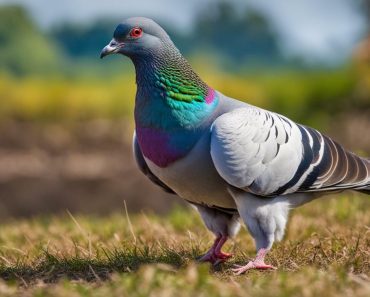Hello there! If you’re wondering whether dogs can eat nectarines, you’ve come to the right place. As a pet owner, it’s important to know what foods are safe for your furry friend to enjoy. In this guide, I’ll provide you with all the information you need to ensure the well-being of your canine companion when it comes to nectarines.
Can Dogs Eat Nectarines? Yes, they can, with careful preparation.
- Nectarines are safe for dogs and can provide them with essential vitamins and minerals.
- They are rich in vitamins A and C, potassium, magnesium, and dietary fiber.
- However, caution should be exercised when feeding nectarines to dogs, as the pits can be a choking hazard and contain small amounts of cyanide.
- Cut nectarines into appropriate sizes for your dog’s breed and never offer the pits.
- Keep an eye out for symptoms if your dog consumes rotten nectarines or pits, such as vomiting, decreased appetite, swollen abdomen, and lethargy.
What Makes Nectarines Good for Dogs?
Nectarines are packed with essential vitamins and minerals that offer numerous benefits for dogs. They contain a rich source of vitamins A and C, promoting healthy eye function, maintaining a glowing skin condition, and enhancing overall immunity. Additionally, nectarines offer a significant amount of dietary fiber, potassium, and magnesium, which play vital roles in balancing bodily fluids, supporting the proper functioning of the endocrine, nervous, and muscular systems, and ensuring a healthy digestive system for our furry friends.
The presence of these valuable nutrients in nectarines can prove particularly advantageous for dogs that may have deficiencies in their regular diet. While it is true that dogs naturally produce vitamin C, adding extra nutritional value through nectarines can be beneficial, especially when a dog is feeling unwell or has ingested potentially harmful substances.
- Vitamin A: Supports eye health and maintains a healthy skin condition
- Vitamin C: Enhances the body’s immune system and overall well-being
- Potassium: Helps regulate fluid balance and supports proper nerve and muscle function
- Magnesium: Promotes the optimal functioning of the endocrine, nervous, and muscular systems
- Dietary Fiber: Supports a healthy digestive system and aids in proper digestion
Considerations When Feeding Your Dog Nectarines
Feeding nectarines to dogs requires careful consideration to ensure their safety and well-being. Here are some important precautions to keep in mind:
- Proper Sizing: When offering nectarines to your furry friend, it’s crucial to cut them into appropriate sizes. For small dogs, dice the nectarines into smaller pieces to minimize the risk of choking. Larger dogs can handle quartered slices, but always be cautious to avoid any potential hazards.
- Avoid Nectarine Pits: Nectarine pits pose significant dangers to dogs and should never be given to them. These pits can lead to choking and contain small amounts of cyanide, which can be harmful to their health. Always be vigilant and ensure that your dog doesn’t come into contact with nectarine pits.
- Watch for Symptoms: If your dog consumes rotten nectarines or pits accidentally, keep a close eye on their behavior. Look out for symptoms such as vomiting, decreased appetite, a swollen abdomen, or lethargy. If you notice any of these signs, it’s essential to consult your veterinarian immediately.
As with any new food, it’s best to introduce nectarines gradually and observe how your dog reacts to them. Remember that some dogs may have allergies or sensitivities to certain foods, including nectarines.
By following these precautions and monitoring your dog’s response, you can safely incorporate nectarines into their diet and provide them with a nutritious and enjoyable treat.

Fresh, Canned, or Dried Nectarines for Dogs?
When it comes to giving nectarines to dogs, it’s important to consider the best options for their health. While nectarines can be a tasty treat, choosing the right form is crucial to ensure your furry friend stays happy and healthy.
Fresh Nectarines for Dogs
Fresh nectarines are the top choice when it comes to feeding dogs this delicious fruit. Fresh nectarines provide the highest nutritional value, as they are packed with essential vitamins, minerals, and dietary fiber. They offer a refreshing and hydrating snack, particularly during hot summer months. Remember to wash the nectarines thoroughly before offering them to your dog to remove any dirt, pesticides, or chemicals that may be present on the skin. This will help ensure your dog gets the full benefits of the fruit without any potential toxins.
Canned Nectarines for Dogs
Canned nectarines, while convenient, should be avoided when possible. Canned fruits often contain added sugars and preservatives, which can be detrimental to a dog’s health. Excessive sugar consumption can lead to weight gain, dental issues, and even diabetes in dogs. Therefore, it is best to opt for fresh nectarines instead of their canned counterparts to provide your furry friend with the highest quality nutrition.
Dried Nectarines for Dogs
Dried nectarines can be given to dogs as an occasional treat, but in moderation. While dried fruits may seem like a convenient option, they have a higher sugar content compared to fresh nectarines. Excessive sugar intake can lead to weight gain and other health issues in dogs. If you choose to give your dog dried nectarines, make sure to do so in small quantities and as an occasional indulgence.
Organic Nectarines for Dogs
Organic nectarines are the preferred choice when it comes to feeding dogs. Non-organic nectarines may contain high levels of pesticides and chemicals, which can be harmful to your pet’s health. Choosing organic nectarines ensures that your dog gets the full nutritional benefits of the fruit without ingesting any potentially harmful substances.
Washing Nectarines for Dogs
Before feeding nectarines to your dog, it is essential to wash them thoroughly. Washing nectarines helps remove any dirt, pesticides, or chemicals that may be present on the skin. This simple step ensures that your dog consumes a clean and safe fruit, minimizing the risk of ingesting any harmful substances.
Other Fruits That Are Good for Dogs
Apart from nectarines, there are plenty of other fruits that are safe and beneficial for dogs to enjoy. These fruits not only make delicious treats, but they also provide essential nutrients that contribute to a healthy diet.
Bananas
Bananas are a great choice for dogs, as they are easy to digest and packed with potassium, fiber, and vitamin C. They make for a convenient and nutritious snack.
Pomegranates
Pomegranates are rich in antioxidants and vitamin C, which can boost the immune system and support heart health in dogs. However, it’s important to remove the seeds and just provide the juicy arils, as the seeds can be harmful if swallowed.
Plums
Plums are a tasty treat for dogs, containing vitamins A, C, and K, as well as dietary fiber. When feeding plums to dogs, make sure to remove the pit, as it can pose a choking hazard.
Oranges
Oranges are packed with vitamin C and can provide a refreshing snack for dogs. However, they should be fed in moderation due to their high citrus content, which can upset a dog’s stomach if consumed in large quantities.
Mangos
Mangos are a tropical fruit that dogs can enjoy. They offer vitamins A, C, and E, as well as dietary fiber. It’s important to remove the pit and the skin before giving mangos to dogs.
Strawberries
Strawberries are a delicious and healthy treat for dogs. They contain antioxidants, fiber, and vitamin C. Just ensure to remove the leaves and stem before offering strawberries to your furry friend.
Dragon Fruit
Dragon fruit is a unique and nutritious fruit that dogs can enjoy. It is rich in vitamin C, fiber, and antioxidants. Make sure to remove the tough outer skin before feeding dragon fruit to your dog.
Cherries
Cherries can be given to dogs as an occasional treat. They offer antioxidants, fiber, and vitamins A and C. However, remember to remove the pit and stems, as they can be harmful if ingested.
Blackberries and Blueberries
Both blackberries and blueberries are safe and healthy for dogs. These berries are packed with antioxidants and fiber, which can contribute to better digestion and overall well-being.
Watermelon
Watermelon is a hydrating and refreshing fruit for dogs. It contains vitamins A and C, as well as a high water content that can help keep dogs hydrated on hot days. It’s important to remove the seeds and rind before giving watermelon to dogs.
Raspberries and Cranberries
Raspberries and cranberries offer a tart and flavorful snack for dogs. They are rich in antioxidants and fiber, which can promote a healthy digestive system. Just remember to serve them in moderation.
Cantaloupe
Cantaloupe is a sweet and juicy fruit that dogs can enjoy in moderation. It contains vitamins A, B, and C, as well as dietary fiber. Remove the seeds and rind before feeding cantaloupe to dogs.
Kiwi
Kiwi is a tropical fruit that can provide dogs with essential vitamins and minerals. It is a good source of vitamin C, fiber, and antioxidants. Be sure to peel the kiwi and remove any seeds before offering it to your dog.
Peaches
Peaches are a delicious and nutritious fruit that dogs can indulge in. They contain vitamins A and C, as well as dietary fiber. Remove the pit and skin before giving peaches to your furry friend.
Keep in mind that individual dogs may have different preferences and tolerances, so it’s important to monitor their reactions when introducing new fruits to their diet. It’s always a good idea to consult with your vet if you have any concerns or questions about feeding fruits to your dog.

Nectarines: Health Benefits and Risks for Dogs
Nectarines offer several health benefits for dogs due to their rich nutritional profile. They are packed with essential vitamins and minerals, such as vitamin A, vitamin C, magnesium, potassium, and dietary fiber, which contribute to their overall well-being.
The vitamins and minerals found in nectarines support various aspects of a dog’s health. Vitamin A promotes healthy eyesight and supports optimal skin condition, while vitamin C boosts the immune system and aids in the healing of wounds. Magnesium and potassium are necessary for nerve and muscle function, ensuring proper bodily movements. Additionally, the dietary fiber present in nectarines aids in maintaining a healthy digestive system.
However, it’s important to note that while nectarines offer health benefits, excessive consumption can lead to potential risks for dogs. Nectarines have high sugar and citric acid content, making it essential to feed them in moderation to prevent upset stomachs. Feeding too many nectarines can result in stomach aches and gastric distress.
Another risk associated with nectarines is the presence of pits. Nectarine pits pose a choking hazard for dogs and should never be consumed. Additionally, the pits contain trace amounts of cyanide, which can be harmful if ingested.
Feeding sugary fruits like nectarines in excess can also contribute to weight gain, obesity, and dental issues in dogs. It’s important to maintain a balanced diet and monitor the dog’s calorie intake.
Nectarines provide health benefits for dogs due to their vitamin and mineral content. However, it is crucial to feed them in moderation, remove the pits, and watch for any adverse reactions. A balanced diet and proper portion control are key to ensuring the well-being of our furry friends.
Conclusion
Nectarines can be a safe and nutritious addition to a dog’s diet when fed in moderation and with caution. These juicy fruits provide essential vitamins, such as vitamin A and vitamin C, along with minerals like potassium and magnesium, which promote overall health and well-being in dogs. The dietary fiber found in nectarines can also support digestive health and regularity.
However, it is crucial to take certain precautions when feeding nectarines to dogs. Always cut the fruit into appropriate sizes and remove the pits, as they pose a choking hazard and contain trace amounts of cyanide. Watch out for any symptoms such as vomiting, decreased appetite, swollen abdomen, or lethargy, which may indicate a negative reaction to nectarines.
Opting for fresh, organic nectarines is the best choice, as they are free from harmful pesticides and additives. Canned or dried nectarines should be given in smaller quantities due to their higher sugar content. Introduce nectarines slowly into your dog’s diet and monitor their response. If you have any concerns or if your dog has pre-existing health conditions, it is always advisable to consult with a veterinarian.
By following these guidelines and considering your dog’s individual needs, you can safely incorporate nectarines as a nutritious and tasty treat for your furry friend. Remember, a balanced and varied diet, along with proper portion control, is key to ensuring the well-being of your beloved pet.






